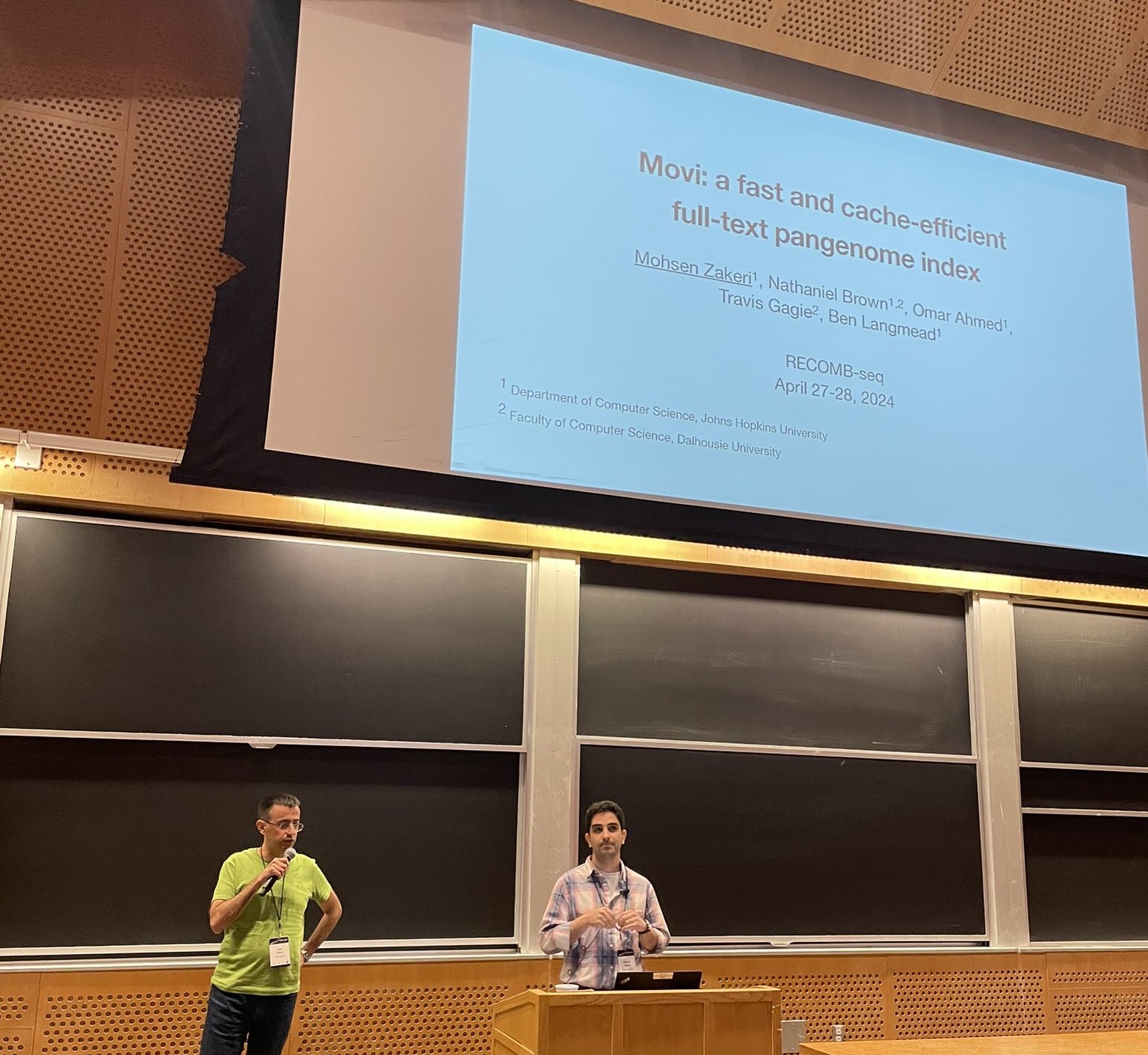
About me
I am a computer scientist with a background in bioinformatics and computational biology. Holding a Ph.D. in Computer Science from the University of Maryland, I specialize in developing efficient data structures and algorithms for analyzing complex biological datasets.
My experience encompasses a wide range of projects, from designing and implementing efficient classification methods for nanopore reads to contributing to the development of tools like Alevin-fry and Puffaligner for pre-processing single and bulk RNA-seq short reads. My passion lies in creating solutions that bridge the gap between computational challenges and biological insights.
I am excited about the intersection of computer science and biology, and I look forward to contributing to advancements in the field.
Find my CV here.
Projects
that I have contributed to
alevin-fry
A suite of tools for the rapid, accurate and memory-frugal processing single-cell and single-nucleus sequencing data.
I contributed to the development of the pseudo-alignment with structural constraints algorithm for mapping short reads to the transcriptome.
Puffaligner
Puffaligner is a fast, sensitive and accurate aligner built on top of the Pufferfish index for short sequencing reads.
I was one of the two main developers (with Fatemeh Almodaresi) of this project.
Salmon
Salmon is a wicked-fast program to produce a highly-accurate, transcript-level quantification estimates from RNA-seq data.
I contributed to the development of the data-driven factorization and the selective-alignment algorithm to improve the quantification accuracy.
mudskipper
A tool for converting genomic BAM/SAM files to BAM/RAD alignment files with transcriptomic coordinates.
I started the development this project during my internship at Ocean Genomics in summer 2021. It was the first project I did in Rust.
News
[September 2024] I served as a judge in HopHacks. HopHack is a 36 hour annual Hackaton held at Johns Hopkins University. Teams create applications from scratch using available online APIs. The projects were first presented in a science fair format and were evaluated based on "usefulness", "polish", "creativity", and "technical difficulty". Out of over 60 projects, 10 were selected by the judges for a final presentation with live demos. Finally, the top 3 were selected for the awards. More information is available here and here.

[April 2024] I presented Movi, an efficient full-text index for pangenomes in Recomb-seq 2024. For more information look here and here. Find my slides here.

[February 2024] We released a new version of the Movi which exhibits even faster queries by implementing a latency hiding approach. We provide the new results in the new version of the preprint. Find it on BioRxv

[December 2023] I presented our latest work about using move structure for adaptive sampling of nanopore long reads in Genome Informatics 2023. Find my slides here.

[November 2023] We posted a pre-print about implementing move data stucture for cache-efficient string matching. Find it on BioRxv

[Fall 2023] I instructed a HEART course for incoming undergraduate students. The course was about an introduction to common exact and approximate string matching algorithms that are widely used for searching sequencing data. Find my slides for the course here.
